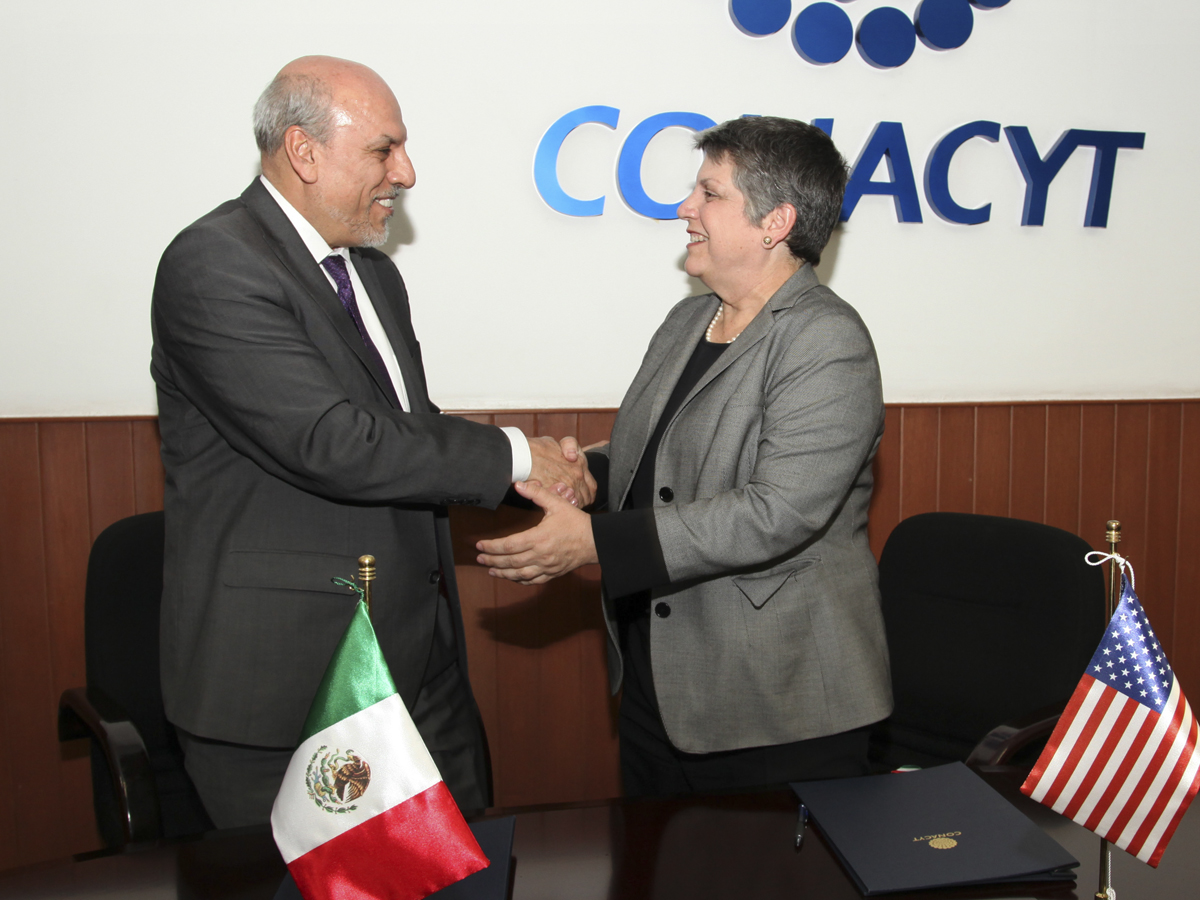
UC President Janet Napolitano met with key leaders of higher education from Feb. 26 to 27 in Ensenada, Mexico. The meeting is the first formal gathering for the advisory board of the UC-Mexico Initiative, whose goals are to strengthen UC-Mexico relations. UCR Chancellor Kim Wilcox and other administrators are leading the 2014 initiative to increase faculty and student exchanges, research collaborations and scholarly activities across the nation’s borders.
Napolitano described the meeting as “a chance to brainstorm, roll-up our sleeves and advance our common agenda.” The 15-member board is co-chaired by Napolitano and Jose Narro, director of the National Autonomous University of Mexico (UNAM), and consists of an administration, advisory board, task force on student mobility and five working groups — each led by a faculty member from one UC campus — focused on the areas of arts and culture, energy, health, education and the environment.
Veronique Rorive, co-assistant director of the initiative, views faculty and student exchanges as “the building blocks of research” and seeks to increase them. One major goal includes creating a framework to improve strategic and academic collaborations between UC and Mexican institutions. A two-year action plan was also implemented last year with Mexico’s National Council for Arts and Culture.
One project in the works seeks to help create training and certification programs for Mexicans working in Mexico’s energy sector. Another initiative may allow the UC Press to partner with various Mexican publications, permitting faculty to publish research in both Spanish and English.
Rorive explains that the UC initiative will expand upon faculty-led courses, which involves having a professor take a group of students to study in Mexico. There are currently 73 UC students in faculty-led classes in Mexico and 23 UC students traveling abroad to study in UNAM. UC students and faculty may be sent to study abroad in Mexico through field research, an experimental segment of the Education Abroad Program (EAP). “That kind of participation is increasing in the UC system,” Rorive said.
UCR holds a rich history of working with Mexico and even houses the University of California Institute for Mexico and the United States (UC MEXUS), which was established in 1980 to support binational and Latino research and collaborative academic programs. The UC-Mexico Initiative often works with UC MEXUS, whose director, Exequiel Ezcurra, serves on the initiative’s task force for student mobility.
Some challenges facing the UC involve increasing student study abroad numbers in Mexico, which have been low in recent years due to travel restrictions and safety concerns, as in the case of UCR engineering professor Guillermo Aguilar, whose planned EAP faculty-led courses this summer in Mexico City were cancelled due to lack of student enrollment.
“We have fairly done it very well through UNAM,” Rorive said about the exchange of UC faculty and students. A goal is to make UC-Mexico collaborations more inclusive by working with more Mexican institutions and encouraging the enrollment of a diversity of UC students.
The UC-Mexico Initiative will also include a collaborative project between five UCs to study immigration. Announced last week, the project will be supported by a $525,000 grant over the course of four years from the Multicampus Research Programs and Initiatives, a branch of the UC Office of the President.
As the former governor of Arizona, Napolitano has a longstanding interest in Mexico and wanted to bring many of the UC collaborations with Mexico under a single framework.
“What we’re doing is creating a sustained, strategic and equal partnership with Mexico that addresses common issues and nurtures the next generation of leaders in both countries,” UC Media Specialist Shelly Meron said.
Other UCR officials who participated in the meeting included project lead Cindy Giorgio and co-assistant director Alberto Díaz. An upcoming event entitled UC Mexicanistas Conference will take place at UC Irvine from May 14 to 16.








